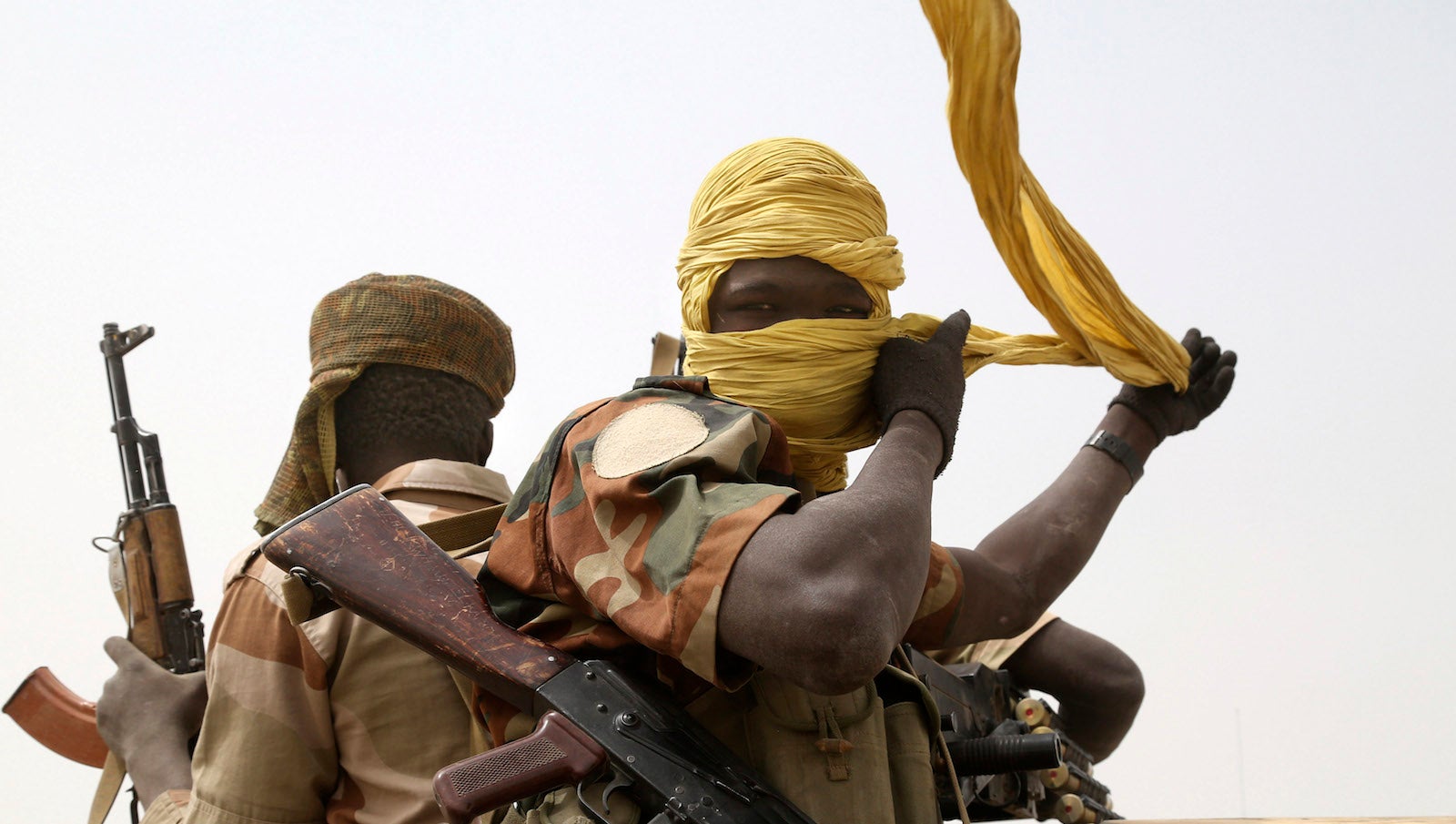ISIL and Boko Haram just allied—what’s next for Nigeria?
After months of emulating the videos and tactics of the Islamic State, on Mar. 7th, Boko Haram pledged bayat to the Islamic State in Iraq and Syria (ISIL) through the release of an audiotape. The pledge was accompanied by a renewed offensive against the city of Maiduguri, with four suicide bombing attacks.


After months of emulating the videos and tactics of the Islamic State, on Mar. 7th, Boko Haram pledged bayat to the Islamic State in Iraq and Syria (ISIL) through the release of an audiotape. The pledge was accompanied by a renewed offensive against the city of Maiduguri, with four suicide bombing attacks.
Today, ISIL seems to have accepted Boko Haram’s pledge. The extent of the partnership between Boko Haram and ISIL remains unclear, but the declaration marks an important moment in the evolution of the Boko Haram insurgency.
What began as a dissident sect confined to a small area in Borno State is now a 4,000-6,000 strong force that controls significant territory in the country, has launched regional attacks, and is now cultivating international terrorist links. Recent videos and statements from Boko Haram have emulated the style of ISIL’s propaganda; stylistically, Boko Haram has increased its professionalism and sophistication and even adopted the same music as ISIL in the “opening credits” of their films.
Such mimicry may generate international credentials, though the extent to which smoothly edited videos will generate support in Nigeria remains to be seen. Roughly one-third of the Nigerian population has access to the Internet, though the rate of Internet penetration in the country is growing rapidly. Internet usage rates are almost certainly lower in the country’s northeast, where Boko Haram is the strongest, but knowledge of its link to ISIL through other outlets would still confer legitimacy on Boko Haram.
In recent months, Boko Haram and ISIL have both relied upon strategies of taking territory, rather than engaging in the sort of sensationalized attacks against Western targets that characterize Al Qaeda and its affiliates. While Al Qaeda has relied upon donor funding, ISIL relies upon selling oil on the black market and other illicit activities to finance its operations; over recent months, Boko Haram’s financing seems increasingly linked to criminal networks in the Sahel, including the possible sale of abducted girls. The group has also been involved in bank robberies since its inception. The value in an affiliation with ISIL, for Boko Haram, therefore lies less in the potential operational assistance and more in the facilitation of recruitment from such an arrangement.
In making bayat, Boko Haram accepts the authority and legitimacy of the Caliphate established by ISIL. An affiliation under these terms is likely to bolster the legitimacy and appeal of Boko Haram in Nigeria and throughout the Sahel. Much ink has been spilled attempting to explain the appeal of ISIL and its ability to draw in foreign recruits. According to the Boston Globe, a tentative consensus has emerged that the group has been able to create a “clear – and to some, compelling – idea of citizenship and state-building in a region almost completely bereft of either.”
The same process is at play in Nigeria. Though the country returned to democratic rule in 1999, citizen trust in government is low. Attitudinal data collected by the AfroBarometer found that, 45% of Nigerians characterized their government as being “very bad” at managing the economy. Nearly a quarter of respondents (24%) said that they trusted the President, Goodluck Jonathon “not at all” – a figure made all the more remarkable when you consider this measurement does not capture public opinion during Boko Haram’s escalation in 2014. In particular, the country’s predominantly northern regions are relatively economically underdeveloped, allowing Boko Haram to mobilize support in its earlier years behind a narrative of inequitable governance.
The statistics comparing the country’s north and south demonstrate the contrast between the development of the two regions – literacy in Lagos is estimated to be 92%, whereas it is only 49% in Kano, the northern commercial capital, and a below 15% in Borno, the ‘epicenter’ of the Boko Haram crisis. Just as ISIL uses rhetoric and historical notions that appeal broadly to Muslim populations, in particular the historical strength of Caliphates, Boko Haram has been able to galvanize support against the Nigerian state on the basis of it being both inept and un-Islamic.
On Sunday, Mar. 8, Niger and Chad launched an offensive against Boko Haram in the country’s north and four days later, the UN announced support for the African Union regional force. Now, international observers are speculating whether the ISIL-Boko Haram affiliation will spur American involvement in the conflict. Ultimately, though, these responses ignore the roots of the insurgency, as outsiders have done since Boko Haram’s inception; understanding why Salafist jihadism is an appealing ideology is critical to launching an effective response to the combatants.
A deeper consideration of Boko Haram’s ideological appeal and growth underlines how inefficient the Nigerian state has been in responding to terror with extrajudicial violence and human rights abuses against civilians in the north. Such attrition has only served to enforce the insurgents’ claims that the state is illegitimate. And while an affiliation between ISIL and Boko Haram may not radically alter the characteristics of the Nigerian insurgency, it will amplify this dangerous message.